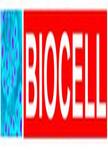Metabolic engineering and genome editing strategies for enhanced lipid production in microalgae
作者机构:Department of BiotechnologyVignan’s Foundation ScienceTechnology and ResearchVadlamudiAndhra Pradesh522213India ICAR-Directorate of Floricultural ResearchPune412307India
出 版 物:《BIOCELL》 (生物细胞(英文))
年 卷 期:2024年第48卷第8期
页 面:1181-1195页
核心收录:
学科分类:0710[理学-生物学] 07[理学] 08[工学] 09[农学] 071007[理学-遗传学] 0901[农学-作物学] 0836[工学-生物工程] 090102[农学-作物遗传育种]
基 金:partially supported by Department of Science and Technology Science and Engineering Research Board under Teachers Associateship for Research Excellence(TARE)Scheme(File Number TAR/2023/000036)
主 题:Oleaginous microalgae Biodiesel TAG synthesis Metabolic engineering Genome editing
摘 要:Depleting global petroleum reserves and skyrocketing prices coupled with succinct supply have been a grave concern,which needs alternative sources to conventional *** microalgae have been explored for enhanced lipid production,leading towards biodiesel *** microalgae have short life cycles,require less labor,and space,and are easy to scale ***,the primary source of lipids needed to produce biodiesel,is accumulated by most *** article focuses on different types of oleaginous microalgae,which can be used as a feedstock to produce *** biosynthesis in microalgae occurs through fatty acid synthesis and TAG synthesis ***-depth discussions are held regarding other efficient methods for enhancing fatty acid and TAG synthesis,regulating TAG biosynthesis bypass methods,blocking competing pathways,multigene approach,and genome *** most potential targets for gene transformation are hypothesized to be a malic enzyme and diacylglycerol acyltransferase while lowering phosphoenolpyruvate carboxylase activity is reported to be advantageous for lipid synthesis.



